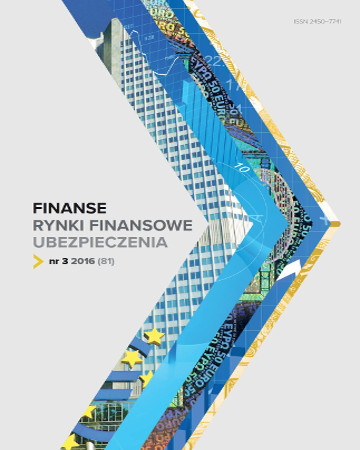
ISSN: 2450-7741
OAI
DOI: 10.18276/frfu.2018.94/1-14


Issue archive /
4/2018
Sprawozdanie z działalności jednostki jako źródło informacji
o kapitale intelektualnym przedsiębiorstwa
(Report on the entity's activities as a source of information
about the intellectual capital)
| Authors: |
Tomasz
Zygmański

Uniwersytet Szczeciński, Wydział Nauk Ekonomicznych i Zarządzania, Instytut Rachunkowości, tomasz.zygmanski@usz.edu.pl |
| Keywords: | management report reporting on intangible assets usefulness of decision-making information intellectual capital reporting |
| Data publikacji całości: | 2018 |
| Page range: | 13 (151-163) |
Abstract
Purpose – The aim of the article is to analyze the reports on the unit's activity, on the example of companies from the WIG-20 index, in terms of the scope of disclosures about information about intellectual capital and their decision-making usefulness.
Design/Methodology/approach – The method of literature studies, analysis of legal acts, analysis of unit activity reports, induction method and logical inference were used for the purposes of the article.
Findings – The companies try to provide information about the components of intellectual capital, but the lack of a uniform report pattern means that the information varies considerably between individual economic units in terms of their scope and decision-making usefulness. In addition, it is difficult to determine the suitability of information about intellectual capital, presented in the analyzed reports on the operations of the entity.
Originality/value – The article is a current review of the scope of disclosures of information about intellectual capital by modern business units. Additionally, the article shows that the fundamental attribute of information, or its usefulness, is in contradiction with the guiding principle of accounting - the principle of a true and fair view.
Download file
Article file
Bibliography
| 1. | Boruszewski J. (2012). Jakość i wiarygodność informacji w infobrokerstwie. Lingua ac Communitas, 22. |
| 2. | Edvinsson L. (1997). Developing Intellectual Capital at Skandia. Long Range Planning 1997, Vol. |
| 3. | Edvinsson L., Malone M.S. (2001). Kapitał intelektualny, Warszawa: PWN. |
| 4. | Kasiewicz, S., Rogowski, W. (2006). Koncepcja zarządzania kapitałem intelektualnym. W: R. Kasiewicz, W. Rogowski, M. Kicińska, Kapitał intelektualny. Spojrzenie z perspektywy interesariuszy (s. 78–114). Kraków: Oficyna Ekonomiczna. |
| 5. | Międzynarodowe Standardy Sprawozdawczości Finansowej (2016), Warszawa: Stowarzyszenie Księgowych w Polsce. |
| 6. | Nita B. (2014). Sprawozdawczość zarządcza. Analizy I raporty wewnętrzne w controllingu. Warszawa: Wydawnictwo Naukowe PWN. |
| 7. | Pobrotyn A. (2012). Znaczenie kapitału intelektualnego w zarządzaniu przedsiębiorstwem. Acta Scientifica Academiae Ostroviensis. Sectio A, Nauki Humanistyczne, Społeczne i Techniczne, Tom 1. |
| 8. | Sveiby K.-E. (1998). Measuring Intangibles and Intellectual Capital - An Emerging First Standard. Pobrano z: http://intelegen.com/money/EmergingStandard.html (10.04.2018 r.). |
| 9. | Ustawa z dnia 29 września 1994 r. o rachunkowości. Dz. U. z 2018 r. poz. 650. |
| 10. | Zygmański, T. (2016). Wycena kapitału intelektualnego a prezentacja w sprawozdaniach finansowych na przykładzie wybranych spółek przemysłu metalowego w Polsce. Studia Ekonomiczne. Zeszyty Naukowe Uniwersytetu Ekonomicznego w Katowicach, 268. |